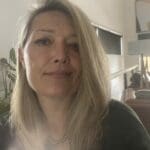Rebuilding after the fires: the role of entrepreneurship

30 May 2022 at 6:03 pm
Community-led solutions was one of four key topics explored at the SEWF 2022 Policy Forum which took place last week, kicking off an annual programme of events.
When the 2019/20 Black Summer bushfires hit Mallacoota in Victoria, the result was catastrophic.
It was peak tourism season, so the small coastal town which normally has a population of around 1,000, had 8,000 people there.
The one road leading in and out was closed for 39 days, meaning the only way for supplies and people to get in or out was by sea or air.
More than 120 houses were lost in the district and 84 per cent of the total area was burnt.
But out of this devastating event, emerged a new focus on rural entrepreneurship.
The community decided to adopt a community-led approach to its recovery.
How they did this was the topic of conversation at the SEWF 2022 Policy Forum.
Meg Allan, who was born and raised in Mallacoota, is the co-founder of the Wilderness Collective. She joined host Matt Pfahlert, the co-founder and CEO of ACRE and Social Enterprise Academy Australia, for a discussion on community-led solutions.
One of her key takeaways focused on the need to take a step back and look at the wider systems in place, particularly in regional Australia.
“[You need to] look at how each part interacts with the other, and really start looking for opportunities to enable the community to address their own challenges,” she said.
She recounted the steps they had taken in Mallacoota, starting with electing a community recovery committee, and then creating a recovery plan which included projects and priorities from the community that were voted on.
“Because we have a small tourist season and the fires hit on New Year’s Eve, we lost the major opportunity for people to make money in their businesses or individually, so I joined this economic subcommittee and we began thinking of ways to mitigate that or improve our resilience,” Allan recalled.
“The idea that we came up with was a co-working space.”
The hope was that they could attract people year-round to do work for Mallacoota. But it turned out the original idea wasn’t feasible for a number of reasons.
“Before the fires we had a lot of challenges which lots of regional and rural communities in Australia have,” Allan said.
“We have an ageing population, we have a hollowing-out of that sort of working age group, there are not many opportunities, our newsagents had already closed and our second service station and many other shops and businesses are up for sale, so a co-working space wasn’t going to cut the mustard.”
The group realised they needed to take a different approach.
That’s when the different sub-committees came together and started looking at the challenges.
“There were big systemic challenges there that were stopping all of our projects and that’s where the Wilderness Workspace, which was a co-working space, grew into the Wilderness Collective,” Allan said.
The project, which is volunteer-led, uses enterprise, co-working and knowledge sharing as the catalysts for rural rejuvenation.
Through leveraging digital connectivity, the aim is to create lives fully lived in Mallacoota, where young people do not need to leave to find meaningful work and families can stay together without being forced out due to lack of opportunities.
Allan explained they are partnering with ACRE and other learning institutions to try and take an innovative new approach to provide the community with education, training and alternate ways of doing business.
“So people can stay and work here and not just come back to retire,” Allan said.
Her interview was one of several making up the first block of the forum exploring community-led solutions.
Over the two days, the forum also explored the future of work, policy and systems, and climate solutions.
It marks the largest policy forum the SEWF team has ever seen, with more than 750 people registered from 55 countries.
It was officially opened by Di Farmer, the Queensland minister for employment and small business and minister for training and skills development, and kicks off an exciting series of events being co-hosted by White Box Enterprises to shine a spotlight on Australia.
If you would like to watch any of the sessions from the forum, they will be uploaded to the SEWF website in the coming weeks.








